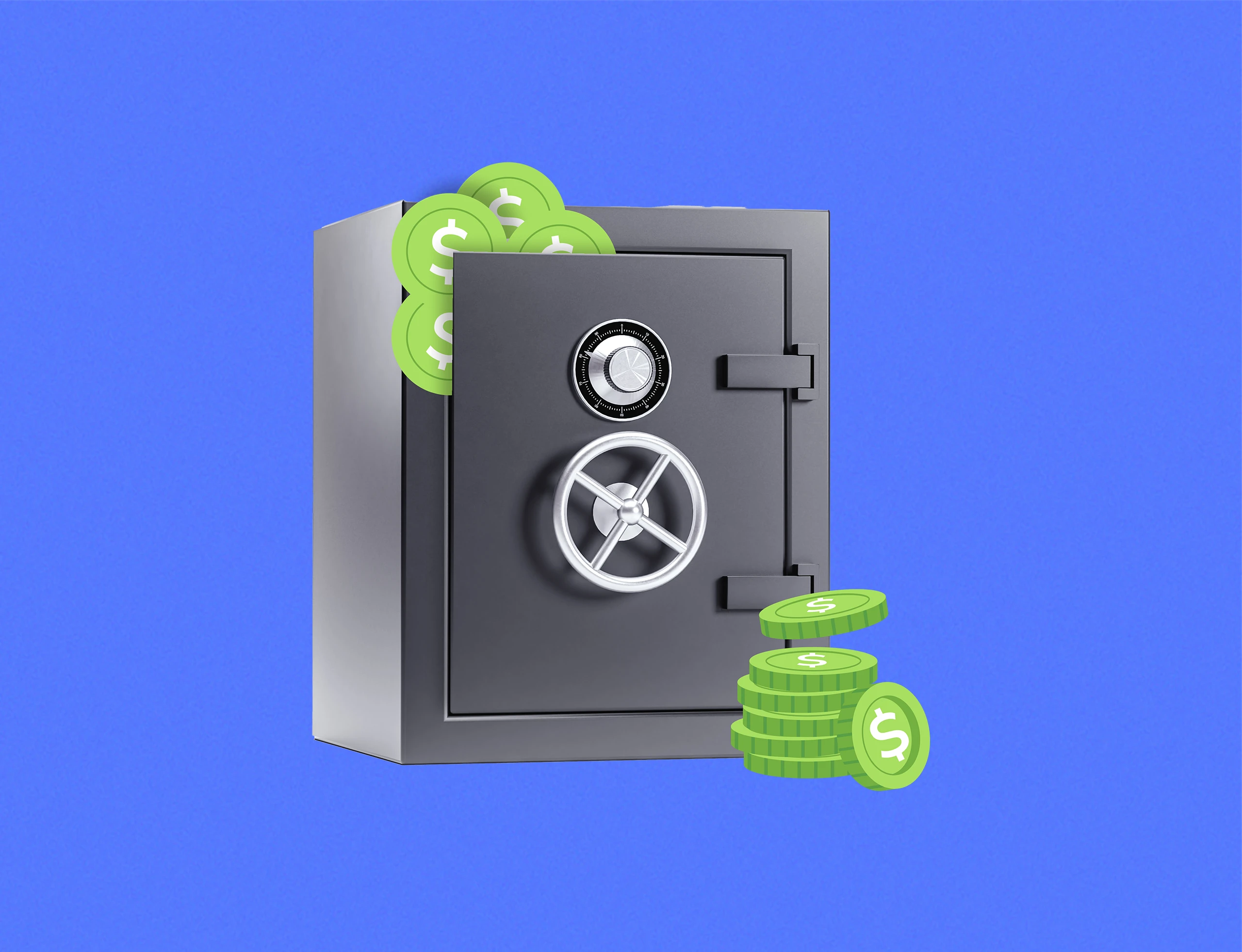A bank letter, also called a bank comfort letter (BCL), is a document a bank issues for its customer. It signals financial credibility and the ability to meet defined obligations.
This type of letter is commonly used in various financial transactions and can be a critical document in ensuring the smooth flow of business dealings. You will find the answers if you searched “what is bank letter” in this article.
Bank Letter Purpose: Why Businesses Use Them
This document is commonly used in business transactions, especially in international trade, to assure counterparties that the bank’s customer has the financial capacity to complete the deal.
While a bank letter does not constitute a guarantee of payment, it offers a degree of assurance to the recipient about the other party’s financial standing. This can be important in high-value transactions where trust and financial credibility matter.
Types of Bank Letter Documents You May Need

Bank letters come in various forms depending on the nature of the financial arrangement and the requirements of the transaction. Common types include:
- Bank Comfort Letters (BCL): These letters confirm the customer’s financial capability, giving counterparties added confidence in the transaction.
- Credit Letters: Confirm the availability of credit lines. They are especially useful when customers must prove they can access funds.
- Verification Letters: Used to confirm account information or other financial details, ensuring all parties have accurate account status information.
When to Use a Bank Letter in Business Transactions
These are some scenarios where a BCL can be typically used:
International Trade
In cross-border transactions, sellers often need assurance that the buyer can pay for the goods or services. A BCL can help establish trust between trading partners, especially without a long-standing relationship. B2B payment solutions such as Bancoli’s Global Payment Gateway can also provide rapid confirmation for international transactions.
The International Chamber of Commerce (ICC) reports that businesses use BCLs in international trade, with an estimated 10 to 15 percent of global trade involving these instruments.

Bidding Process
In tender or bidding situations, businesses may request a bank letter to show the bidder’s financial ability to fulfill the contract if awarded.
The presence of a BCL can help influence the outcome of a bid, as it signals the bidder’s financial stability and reliability.
Lease Agreements
Landlords may request a bank letter from prospective tenants to verify financial stability and ability to pay rent. This is common in commercial real estate, where businesses handle significant sums. In such cases, a BCL acts as a verification tool that reassures landlords of the tenant’s ability to meet rental obligations.
Business Partnerships
When entering a joint venture or partnership, parties may request BCLs from each other to confirm financial credibility. If you need to verify who you’re working with, especially in cross-border operations, Bancoli’s Know-Your-Vendor verification is a reliable option.
Why a Bank Letter Matters in Global Trade
Bank letters facilitate business transactions by providing assurance and reducing risks. They help establish trust in international trade by confirming the financial status of the bank’s customer. This is particularly useful when parties have no prior contact or business history.
A BCL can reduce the risk of non-payment or default by offering assurance of financial capability. This type of assurance supports smoother business operations.

Bank letters involve key elements such as bank account details, including the account number, and require accurate document submission to the bank. They may involve fees, which should be clarified during the request process. These letters are important for borrowers seeking credit, as they help ensure all parties can proceed confidently.
How to Obtain and Use a Bank Letter
To obtain a bank letter, the customer must request it directly from their bank or financial institution.
This process usually involves providing specific information, such as the account number and transaction details. The bank then issues the letter in PDF format or another suitable document type that the customer can print or download. Providing accurate documents is essential to avoid delays.
The cost of obtaining a BCL can vary depending on the bank or financial institution and the nature of the request. Some institutions may charge a fee for this service, while others include it in broader banking services. Customers should confirm applicable fees with their provider.
Banks and other financial institutions may require customers to complete specific verification steps before issuing a bank letter. This might include checking the customer’s account history, loan status, and other relevant financial details. Ensuring accounts are in good standing is important for a smooth confirmation process.
Global Business Tips for Using a Bank Letter

If you are engaged in global business, here are some practical recommendations:
Understand the Requirements
Familiarize yourself with your counterparties’ specific requirements and expectations for bank letters. Some may have preferred formats or required content that should be confirmed in advance.
Be Specific
When requesting a bank letter, clearly state the purpose and details of the transaction. This helps ensure the request reflects the nature of the deal and delivers the assurances counterparties expect.
Allow Sufficient Time
Bank letters may take time to process, especially if due diligence is required. Include this in your timeline and request the letter well before it is needed.
Complement with Other Instruments
Depending on the transaction’s nature and risk profile, consider using other risk mitigation tools, such as letters of credit, advance payments, or insurance.
For businesses handling multi-currency transactions, complementary products like Bancoli’s Global Payment Gateway or Global Business Account (USD and EUR accounts) can support operations in over 30 currencies across over 85 countries.
Keep Letters Current
Banks typically issue bank letters for specific transactions and include an expiration date. Keep each relevant letter current and valid.
Seek Professional Advice and Expand Your Knowledge
To make the most of bank letters, expand your knowledge by reviewing reliable resources and reading about financial instruments.

Understanding a BCL can help you use it effectively in your business operations. Stay informed about national and international laws governing bank letters. Compliance with these laws is essential for validity and acceptance.
If you are unsure about the appropriate use of bank letters in your specific circumstances or situation, seek advice from legal or financial professionals who specialize in international trade.
Bank Letter Communication and Documentation Best Practices
Maintain clear communication with your bank and submit all required documents promptly. This includes providing signatures and following up if additional information is requested.
Conclusion
Bank letters are a valuable tool for businesses in global trade. They help establish trust, manage risks, and facilitate transactions by providing assurance of financial capability.
Whether you engage in international trade, bid for large contracts, or enter into new business partnerships, bank letters provide the financial assurances needed to move forward. Utilize these tools to enhance your credibility with financial institutions, ensure smooth transactions, and support your business growth globally.

Frequently Asked Questions
What is a bank letter?
A bank letter, also known as a Bank Comfort Letter (BCL), is a formal document issued by a bank to its business customer. It serves to signal the customer’s financial credibility and ability to meet defined obligations to a third party. While it does not guarantee payment, it offers assurance of the customer’s financial standing, which is critical in high-value B2B transactions, international trade, and bidding processes.
How do I get a bank letter?
You must request it directly from your bank or financial institution. The process typically involves:
- Requesting the letter for a specific purpose (e.g., a transaction, a bid).
- Providing specific information, such as the account number and transaction details.
- The bank performing verification steps (like checking account history).
- The bank then issuing the letter, often in a PDF format.
It’s important to allow sufficient time for processing and to confirm any applicable fees with your provider.
Is a bank letter the same as a bank statement?
No, a bank letter is not the same as a bank statement.
- Bank Letter (BCL): A document issued on request for a specific purpose (like a transaction or partnership) that confirms financial credibility and ability to meet obligations. It is a formal assurance to a third party.
- Bank Statement: A periodic summary of all financial transactions that have occurred in the account over a defined period (usually monthly). Its primary use is for internal monitoring and reconciliation.
The bank letter offers targeted financial assurance, whereas the statement is a detailed transaction record.
What is a bank letter for direct deposit?
A “bank letter for direct deposit” is a document used in the B2B context (e.g., for payroll or vendor payments) that a business might request from its bank to formally confirm its account details. The letter typically verifies the business name, account number, and routing number. This verification provides assurance that the direct deposit information is accurate and helps ensure smooth, error-free electronic payments.




